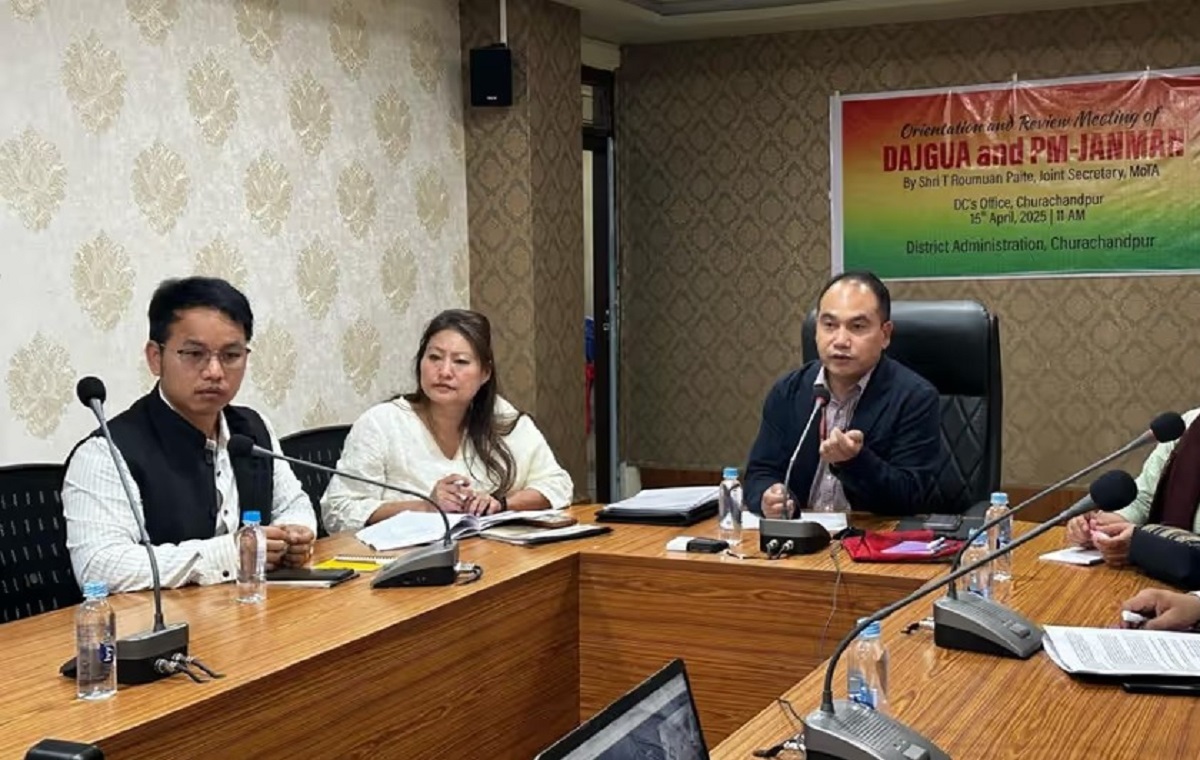In a renewed effort to strengthen tribal welfare across Manipur, the Ministry of Tribal Affairs, Government of India, conducted a high-level Orientation and Review Meeting on Tuesday, placing renewed emphasis on the effective rollout of two flagship tribal initiatives—Dharti Aaba Janjatiya Gram Utkarsh Abhiyan (DAJGUA) and the Pradhan Mantri Janjati Adivasi Nyaya Maha Abhiyan (PM-JANMAN).
The meeting was chaired by T. Roumuan Paite, Joint Secretary, Ministry of Tribal Affairs, and held in a hybrid format—both physically and virtually—at the Conference Hall of the Deputy Commissioner, Churachandpur. Senior officials including administrative secretaries, district magistrates, and directors from key departments participated, reaffirming the Centre’s commitment to improve the socio-economic conditions of tribal populations in the state.
Among the notable attendees were Hanna Kamei, Director of Tribal Affairs & Hills; ST Rithung Anal, State Nodal Officer for DAJGUA; Mannuamching, Deputy Commissioner of Pherzawl; Thangboi Gangte, Additional Deputy Commissioner of Churachandpur; and Khaikhopau Ngaihte, ADC of Mualnuam. District Level Officers from Churachandpur and Pherzawl also actively took part in the session.
Kicking off the meeting, Joint Secretary T. Roumuan Paite stressed the urgent need for capacity building and thorough orientation of field-level officers to ensure that the schemes are not only well understood but also efficiently implemented at the grassroots level. He reiterated the importance of accurate beneficiary identification, local surveys, and the establishment of both district and block-level committees to oversee execution.
The DAJGUA initiative, which is envisioned to transform the lives of tribal communities in over 63,843 villages nationwide, focuses on improving access to basic infrastructure and welfare services. It is expected to benefit nearly 5 crore tribal people across the country by offering targeted interventions in areas such as education, livelihoods, and social security.
Similarly, PM-JANMAN—aimed specifically at the Particularly Vulnerable Tribal Groups (PVTGs)—seeks to bridge the development gap by ensuring delivery of critical services like housing, potable water, sanitation, quality education, healthcare, and road connectivity.
During the discussion, officers were briefed on the operational framework of both schemes, with particular attention paid to the challenges faced in Manipur’s hill districts. Joint Secretary Paite instructed the Deputy Commissioners to conduct district-level orientation programs for all relevant officers within the month of April to accelerate implementation timelines.
“This is not just about scheme delivery; it’s about transforming lives and closing the development gap in tribal regions. It is essential that every level of the administration understands their role clearly,” Paite emphasized.




